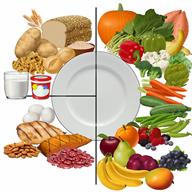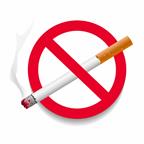Stomach Cancer: Lowering Your Risk
Stomach cancer, also called gastric cancer, is cancer of the lining of the stomach. Cancer happens when cells become abnormal and begin to grow out of control. The exact cause of stomach cancer is not known, but certain factors may make you more likely to develop the condition. You can take steps to lower your risk of developing this type of cancer.
How can this condition affect me?
Stomach cancer usually develops slowly. In early stages, this condition often shows no symptoms. You might not know you have it until the cancer is advanced. This can make treating the disease difficult. That is why making changes to help lower your risk of the disease is so important.
What can increase my risk?
You are more likely to develop this condition if:- You eat a diet that includes a lot of foods that are grilled, smoked, salted, or pickled.
- You use any tobacco products, such as cigarettes, chewing tobacco, or e-cigarettes.
- You drink alcohol excessively. This means more than 2 drinks a day for men and more than 1 drink a day for women.
- You are overweight.
- You have had stomach surgery.
- You have blood type A or have a family history of stomach cancer.
- You have or have had certain other medical conditions, such as:
- Chronic gastritis.
- Stomach polyps.
- Pernicious anemia.
- A Helicobacter pylori stomach infection.
- An Epstein–Barr virus (EBV) infection.
- Common variable immune deficiency (CVID).
- You work in conditions that expose you to coal, metal, or rubber.
What actions can I take to lower my risk?
Nutrition

-
Eat more fruits and vegetables, particularly those high in vitamin C, beta-carotene, and carotenoids. Good choices include citrus fruits, such as oranges, red bell peppers, dark green leafy vegetables, and carrots. A general rule is to eat about 2½ cups of fruits and vegetables every day.
-
Eat foods that contain whole grains instead of processed grains. Examples of whole-grain foods include oats, whole wheat, bulgur, brown rice, quinoa, and millet.
-
Drink green tea.
- Limit your intake of:
- Grilled or smoked meats.
- Salt-cured and pickled foods.
- Salt.
-
Make sure that all the food you eat is properly cooked and stored. This will help prevent bacterial infection, such as H. pylori infection, which can increase the risk of stomach cancer.
Lifestyle

-
Do not use any products that contain nicotine or tobacco. These products include cigarettes, chewing tobacco, and vaping devices, such as e-cigarettes. If you need help quitting, ask your health care provider.
-
Lose weight if you are overweight. Talk to your health care provider about a diet and exercise plan to safely lose weight.
-
Exercise regularly.
- If you drink alcohol:
- Limit how much you have to:
- 0–1 drink a day for women who are not pregnant.
- 0–2 drinks a day for men.
- Know how much alcohol is in your drink. In the U.S., one drink equals one 12 oz bottle of beer (355 mL), one 5 oz glass of wine (148 mL), or one 1½ oz glass of hard liquor (44 mL).
- Limit how much you have to:
-
Avoid exposure to radiation.
-
See your health care provider if you develop any long-lasting (chronic) stomach or abdominal problems.
Where to find support
-
Your health care provider or a dietitian can help you create a healthy diet plan that can help reduce your risk of stomach cancer.
-
Some risk factors for stomach cancer are passed down through families. Talk to your health care provider or genetic counselor to learn more about genetic testing for cancer.
- If you need help to quit smoking or using tobacco, visit these websites:
- Smokefree.gov: smokefree.gov
- U.S. Department of Health and Human Services: betobaccofree.hhs.gov
- Centers for Disease Control and Prevention: cdc.gov
Where to find more information
-
National Cancer Institute: cancer.gov
-
American Cancer Society: cancer.org
Summary
-
Stomach cancer usually develops slowly and often shows no signs or symptoms until it reaches an advanced stage. This can make treating the disease difficult.
-
Eating fruits and vegetables—and avoiding salt, cured and pickled foods, and grilled or smoked meats—can help reduce your risk of stomach cancer.
-
Making sure that food is properly prepared and stored is also important.
-
Lifestyle changes that can help reduce your risk include quitting smoking, being more active, and losing weight if you are overweight.
This information is not intended to replace advice given to you by your health care provider. Make sure you discuss any questions you have with your health care provider.

